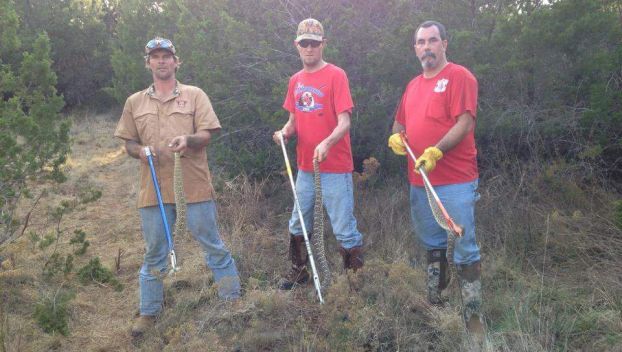
Uncategorized
Passions derail plans to stop rattlesnake ‘gassing’ in Texas
AUSTIN — Gathering rattlesnakes is a familiar chore for Rob McCann, who helped collect 24,000 pounds of live ... Read more

AUSTIN — Gathering rattlesnakes is a familiar chore for Rob McCann, who helped collect 24,000 pounds of live ... Read more